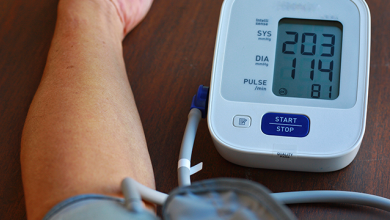Search results
The Core Message of ISCHEMIA
Author(s):
Kreton Mavromatis
,
William E Boden
Added:
3 years ago
Article
The ISCHEMIA Trial: Editorial
Author(s):
Pablo Avanzas
,
Juan Carlos Kaski
Added:
3 years ago
Article
William E Boden
Research Area(s) / Expertise:
Job title: Professor of Medicine
Author
Functional Revascularisation - The Key to Improving Percutaneous Coronary Intervention Outcomes
Author(s):
Margaret McEntegart
,
Keith G Oldroyd
Added:
3 years ago
Article
Author(s):
Maria Chiara Scali
,
Doralisa Morrone
,
Mario Marzilli
Added:
3 years ago
As coronary angiography is of limited value in defining the functional significance of a stenosis, the timely article by Balanescu in this issue of European Cardiology Review rationally proposes to integrate the anatomic information with a functional assessment, either by measuring coronary flow reserve (CFR) or intracoronary artery pressure with fractional flow reserve (FFR). CFR measurements…
View more
Author(s):
Jonathan Jiunn Liang Yap
,
Derek P Chew
,
Gregg Stone
,
et al
Added:
3 years ago
Author(s):
Dimitrios Bliagos
,
Ajay J Kirtane
,
Jeffrey W Moses
Added:
3 years ago
Worldwide, it is estimated that the total number of people with diabetes will increase from 171 million in 2000 to 366 million in 2030.1 In the US, a total of 23.6 million people have diabetes, representing 7.8% of the population, and the prevalence of diabetes is on the rise, due to an increasingly sedentary lifestyle, increasing obesity and an ageing population. These statistics do not account…
View more
Author(s):
Alberto Corsini
Added:
3 years ago
Premise
Evidence spanning from the pathogenesis of atherosclerosis to epidemiological studies consistently support the direct association of elevated plasma low-density lipoprotein-cholesterol (LDL-C) with the increased risk of cardiovascular disease (CVD). Meta-analysis of 14 trials of statin therapy, with more than 90,000 participants, has shown that each 1mmol/l (39mg/dl) of LDL-C reduction…
View more
Author(s):
Gabriel Torres-Ruiz
,
Nuria Mallofré-Vila
,
Paola Rojas-Flores
,
et al
Added:
4 months ago
Author(s):
Serban Balanescu
Added:
3 years ago
Coronary artery disease (CAD) due to atherosclerosis is a major cause of morbidity and mortality. Early prevention of atherothrombotic disease with a healthy lifestyle (diet, exercise, optimal body weight and no smoking) is considered the best method of “treating” CAD, although increasing age remains associated with significant cardiovascular events.
When coronary atherothrombotic disease…
View more














